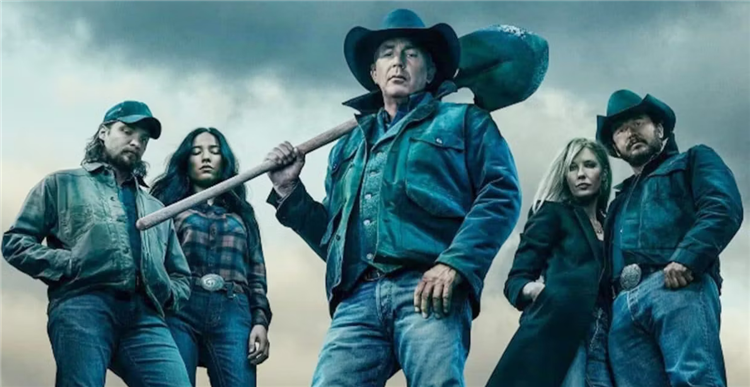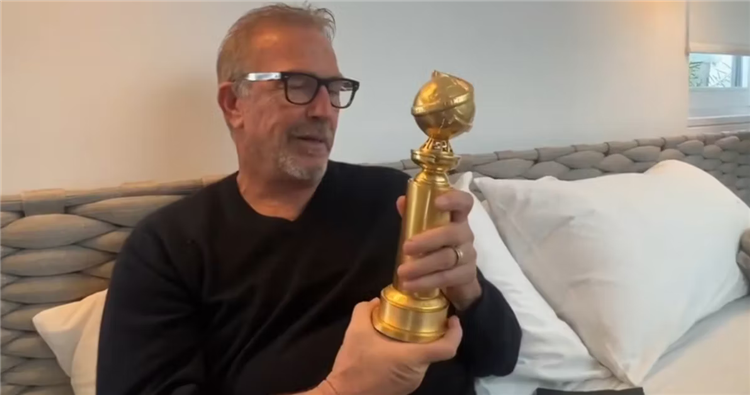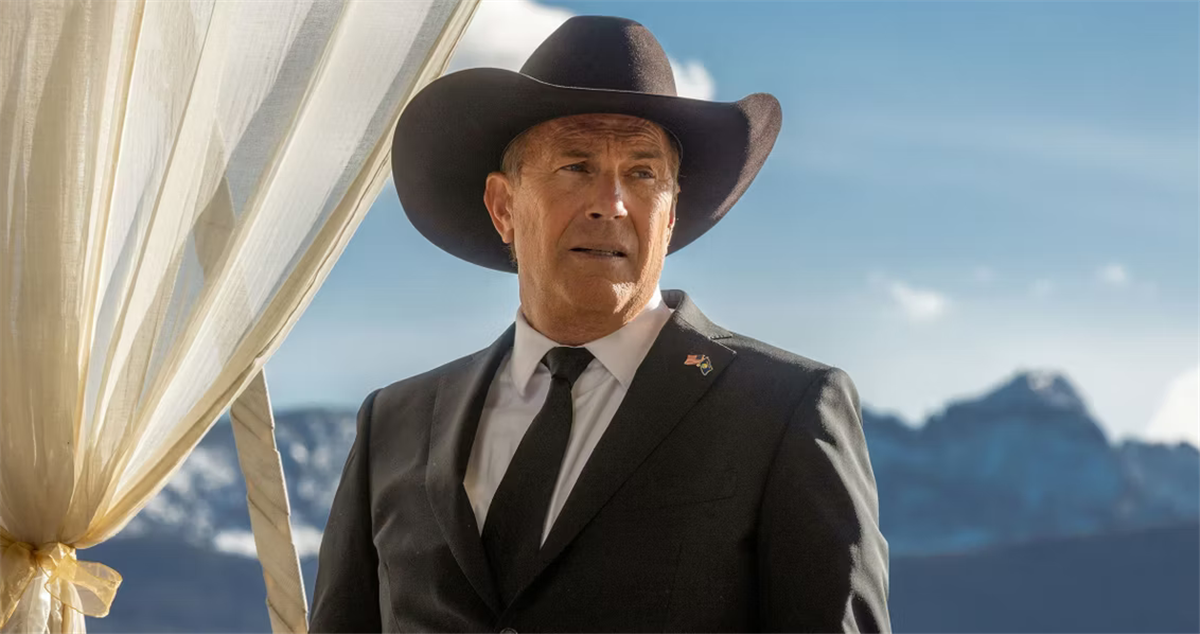Yellowstone was once a beloved drama that showed no signs of slowing down. However, with off-screen drama and bad writing, the show has taken a turn.
The answer to why such a critically-acclaimed, ground-breaking series such as Yellowstone is falling apart would seem to be because the vaunted lead and noble repository of the complicated yet honorable John Dutton, Kevin Costner, is gathering his coat and hat.
Kevin Costner departing the project that he professed to love and have a personal vested interest in has invariably hit the fan base like a ton of bricks. Yet the departure of the de facto lead in the series is not the only problem plaguing Yellowstone.
1883 and Other Distractions

Despite its prequel 1883 attempting to breathe new life into the franchise, Yellowstone is losing viewership alongside overall interest. The problem with Yellowstone isn’t the acting, the characterization, or the bombshell news that Kevin Costner has left the series. The problem, quite simply, is bad writing.
Evidence of this forced scripting – bad writing – can be found in the characters. While Wes Bentley dutifully performs his turn as the overwhelmed ‘good-boy’ patriarch and long-suffering foil of the family Jaime Dutton, his counterpart Beth (played by irascible Kelly Reilly) seems only to exist later in the series to serve as the contrarian and play the part of annoyed and annoying, or at least invariably in trouble, sister.
Constantly bickering and arguing disparate siblings can be a bonus in the dramatic development department or a departure into useless drama. With this particular brother-versus-sister dynamic, there appears to be no development whatsoever, and thus fans are left with ever-arguing but bland, vicious, insult-hurling rich people. This ‘poor little rich family’ shtick is not exactly relatable.
Another issue with Yellowstone’s writing tends to be its highly unlikely and convoluted suspense moments. Either Luke Grimes’ Kayce Dutton character is irresponsible or simply an absentee father as he repeatedly places his son Carter (played dutifully by Finn Little) in difficult, dangerous, and occasionally absurd and laughable situations.
One week Kayce leaves Carter alone for a few hours only to have Carter attacked by a mountain lion. A couple of weeks later, Kayce leaves Carter alone in the desert again, and this time Carter is attacked by rattlesnakes. After a time, these unnecessary dramatic tent poles stop feeling like authentic drama and more like tedious plot points to suffer through in-between actual story development if not out-right homages to Lassie.
Cowboys and Indians Again?

In the second season especially, it can be incredibly difficult for viewers and fans to identify with the Dutton clan as they struggle against the main villain of the story Gil Birmingham (Chief Thomas). Although filtered through the supposed matrix of confusing real-estate law and gaming and gambling statutes, the fact is that the story’s bad guy is a Native American. And, as disappointing as it sounds, the coalescing thread pushing through the narrative of Yellowstone is modern-day Cowboys-Versus-Indians.
There’s nothing wrong with this genre in and of itself; Zane Grey is an incredible Western creative genius writer who still seems to release books long after his death.
The problem is that viewers have been there and done that. Without waxing moralistic or philosophical – it simply doesn’t fit in with current trends to have white Anglo-Saxon Christians as the protagonist, valiantly defending land and property they stole from indigenous natives. Savvy watchers and intellectual viewers see through this implacable facade and want something deeper, something more meaningful, describing what a Western can truly be.
Because there is no humor in the series, audiences could be compelled to think that a joke here or there would save this plummeting fiasco. The problem with shows demonstrating this level of seriousness, sometimes described as ‘gritty’ or ‘uncompromising,’ is that unending drama, dishumor, and constant solemnity grows boring. Does no one ever stub their toe? Does little Carter never put on a shirt backward? Does no one ever drop anything?
Over-emphasizing a character’s internal struggle, stress, strife, or external anger only emphasizes a single facet of that character. And that poses a problem for Yellowstone and its writers; why can’t they present clear, realistic, and complete characters? Every character is terrified or angry all the time, and such a situation is not tenable forever, not even for Academy-Award-winning actors playing said characters.
The previously mentioned prequel 1883 appears to have been sent post-news of Costner’s departure, an obvious and unrepentant ploy to attract new viewership and prop up Yellowstone’s sagging numbers.
Kevin Costner and the Writers

Kevin Costner is currently working on another western project, Horizon: An American Saga, which may have taken his focus away from Yellowstone. Of course, several other off-screen issues have arisen as well.
Automatically assigning blame to the staff writers and taking Kevin Costner to task for leaving is easy enough. Those two problems could prove insurmountable enough for even Paramount to overcome. If one adds that a writers’ strike will slow down production, then die-hard viewers, alongside casual watchers, will be left with the sense that Yellowstone won’t be coming back. And even if it does, the show will most likely be an empty husk of what it once promised.
